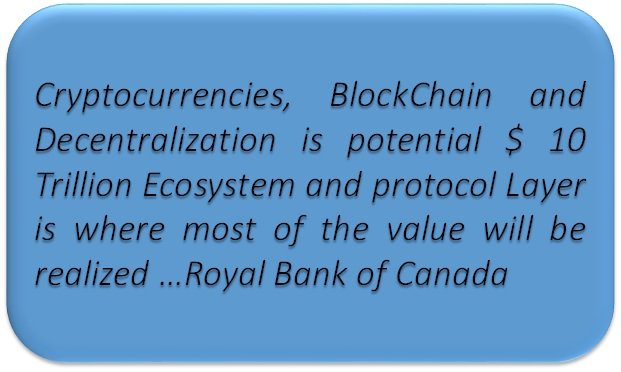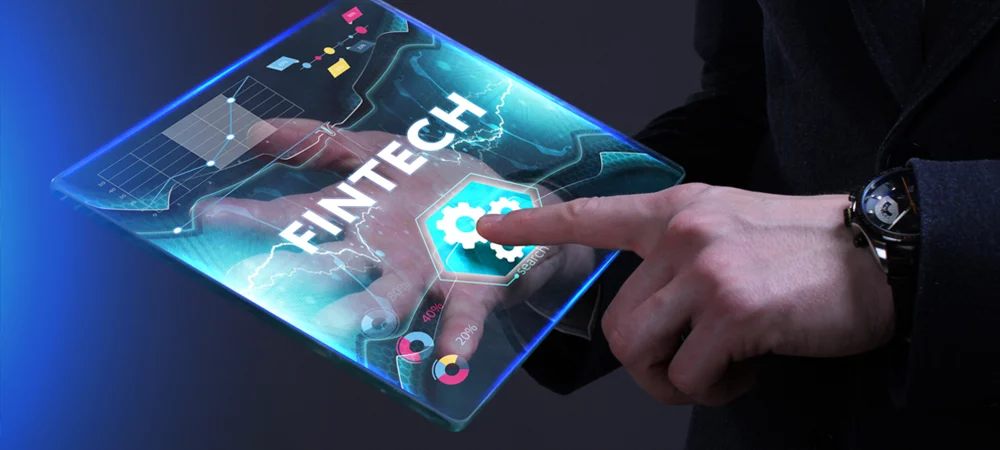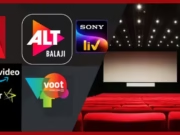Blockchain has come long way, in last eleven years. From a technology underpinning crypto currencies, to a technology which can disrupt the way transactional commerce takes place. Large Tech companies like Intel & IBM have contributed heavily to this technology and offered their work in public domain. Hundreds of large corporations have started working on this technology. Many have rolled out projects & some are working on pilots. Many more have announced their intentions.

Blockchain has write-only type of data structure which resides across multiple computer devices (either intranet or internet), generally spread across locations or regions. It includes technology to store data in the form of Blockchain with time stamp & smart contracts. Bitcoin Blockchain is different from the successive iterations, in terms of technologies such as shared computational power along new sets consensus algorithms. In summary, Blockchain consists of three basic components:
- A data model that captures the current state of the ledger
- A language of transactions that changes the ledger state
- A protocol used to build consensus among participants around which transactions will be accepted and in what order, by the ledger.
For Audio-Visual Experience of the blog, please click following YouTube Link.
In Blockchain every new block (A block refers to a set of transactions that are bundled together) gets added at the end of the ledger. Each block is time stamped, which is another unique feature. Every block has a reference to previous block within a cryptographic key – hash. Immutability of transaction for some could be a great security feature but for cynics, it would be a drawback.

To some “Blockchain” is disruption in Fintech, which is not the case. It is by no means a low cost alternative to some existing business models, processes or products. However, it has potential to change the way people transact. It can cause a shift in paradigm for political, social and economic systems. While it has a potential of great impact, it will be gradual, probably spanning over couple of decades, before blockchain occupies our day to day transactions. For wider reach of the technology, it will be imperative for all stake holders to come on board. No Government, Corporation or intermediary should feel threatened.
In times to come, trust in the intermediary will be replaced with trust in the underlying code and consensus rules. This technology has been and will be extremely effective in Governance, Provenance, Public Health, e-Commerce, Supply Chain Management, Construction, Manufacturing, etc. apart from Fin-tech. Social sector initiatives involving crowd funding, can be an effective use case for Blockchain.



![Relationship Goals Review: Is It Your Next Favorite Rom-Com? [2026]](https://outfluent.blog/wp-content/uploads/2026/02/Relationship-Goals-Review-1-180x135.jpg)
![Cradle of Kindness: A Mumbai Cop’s Heartwarming Gift| Viral Stories [2026] Cradle of kindness](https://outfluent.blog/wp-content/uploads/2026/02/Mumbai-cop-kindness-180x135.webp)




































Blockchain Starter | Outfluent
azdobokfkmx
zdobokfkmx http://www.g0j1iwcm352o4e8424pnd1p03g5y4e4es.org/
[url=http://www.g0j1iwcm352o4e8424pnd1p03g5y4e4es.org/]uzdobokfkmx[/url]
cheap louis vuitton belts real
All In One Lithium Battery
Made in Vietnam Reduce Fat Fast Pills Rectangular Duct Ac Motor Speed Reducer
1BJY-E01 Capacity 3500LBS Trailer Parts And Accessories Trailer European Coupler Equipped with Ball Size 50mm
Battery Customization
cheap louis vuitton belts for women
The Best Portable Solar Generator
1BJY-A01 Trailer Parts And Accessories Capacity 2500KG Trailer Australian Coupler Equipped with Ball Size 50mm
EP MINI small CO2 Laser cutting machine 6090 9060 engraving, machine
asancar.co.kr
1BJY-TC-23 Trailer Parts And Accessories Capacity 30000LBS Trailer Gooseneck Coupler Equipped with Ball Size 2-5/16 inch
cheap louis vuitton belts for sale
Battery Ac Power Supply
cheap louis vuitton belts online
cheap louis vuitton belts men
Best 2000w Solar Generator
Farm Tiller Cultivator Soybean Corn Field Weeder Mounted wif Tractor
Agricultural Massey Ferguson Tractor Mounted Spring Loaded Cultivator For Sudan
A New Type Of Machine Chisel Plow For Lawn Tractor
Hot Selling 3 Point Chisel Plow
Custom Imitation Roof Slates Suppliers Factory
China Fireproof Thatch Roof Exporter Factories
cheap louis vuitton flats
China Commercial Roof Types Exporters Manufacturer
cheap louis vuitton flip flops
Best Epdm Roofing Material Factories Manufacturer
cheap louis vuitton fanny packs
http://www.jslcd.co.kr
2021 New Type Farm Cultivator Motocultor
cheap louis vuitton for men
Best Artificial Straw Roof Exporter Manufacturer
cheap louis vuitton for sale
Cheap Lithium Portable Power Product
China Portable Power Generator Product Manufacturers
High-Quality Lithium Portable Power Service
mspace.pl
Wholesale Lifepo4 Battery Bank Product Service
Wholesale Solar Usb Power Bank Service Product
OEM Hottest Yoga Pants Supplier
Custom Hottest Yoga Pants Manufacturer Suppliers
Custom Hottest Yoga Pants Factories
kormakhv.ru
OEM Hottest Yoga Pants Manufacturers
OEM Hottest Yoga Pants Factory
Custom Fiberglass Geogrid Manufacturers Service
pstz.org.pl
Custom Polyethylene Liners Factory Product
Famous Geogrid Geotextile Suppliers Exporters
High-Quality Soil Matting Companies Products
Buy Pond Liner Tarp Products Service
For informed buying decisions, visit – https://topbuyingidea.com/
movie.gaucbc.org
在线赌场游戏
在线赌场游戏
贝博足彩
sports.gaucbc.org
赌厅网投
澳门博狗
贝博足彩
http://www.sakushinsc.com
在线赌场游戏
赌厅网投
赌厅网投
赌厅网投